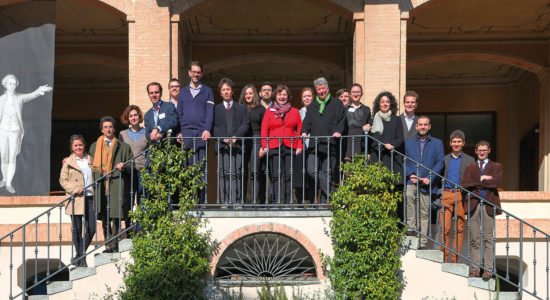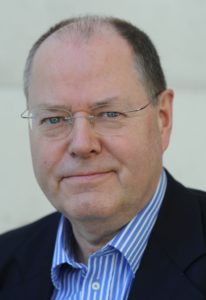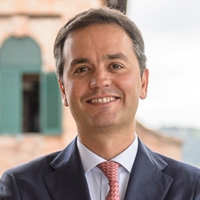In March 2017, the European Union celebrated the 60th anniversary of the signing of the Treaty of Rome. What an extraordinary achievement! European integration has made it possible for three generations of Europeans to live together in peace and prosperity.

Yet it was an anniversary overshadowed by crisis and resignation. Following the Brexit vote, the United Kingdom notified the European Union of its intention to leave. At the same time, countries in the south of Europe were still struggling to overcome the financial crisis. Populism continued its rise: with elections in key countries, nationalist and xenophobic leaders were challenging the continent’s liberal and pro-European order. At the same time, Europe came under increasing pressure from authoritarian leaders in Turkey and Russia as well as a new U.S. President determined to put his country first.
In the face of these challenges, Europe’s established leaders were lacking both vision and courage. Instead of pushing for reforms, the EU focused on damage limitation and the status quo. The passivity of the political elite stands in contrast to the attitude of many younger people in Europe. They have no intention of giving up on Europe. In almost every country of Europe, the younger generation is more favourable to European integration than their elders.
This is why United Europe and Villa Vigoni took a bold decision: both organisations would bring together some of Europe’s brightest young scholars and professionals to draw up proposals for the renewal of the European project. Their paper would be named the “Rome Manifesto” and would be presented during the celebrations for the 60th anniversary of the Rome Treaty. Several of the authors are from Italy and Germany, others come from the Netherlands, Austria, Bosnia, Greece and Britain. Half of them are scholars specialised for instance in history, philosophy, EU law and public governance. The other half are young professionals including a doctor, an entrepreneur, a business consultant and a public affairs specialist.
In early 2017, the authors met in three separate working groups:

Working group 1 met in Berlin to draft the chapters on a new narrative for Europe. While the fundamentals of Europe’s mission – safeguarding peace and prosperity – continue to be valid, a new interpretation of what that means is needed. How to explain Europe’s raison d’être to today’s Europeans? After a spirited discussion, working group 1 chose to explain Europe in terms of the rights that European citizen can claim. For this group, Germany’s former Finance minister Peer Steinbrück, who had long been interested in the issue of a European narrative, served as patron.

Working group 2 was looking at Europe’s institutions and decision-making procedures. From the beginning, it was clear that it would opt for fundamental reform as decision-making at the EU level clearly lacks effectiveness and transparency. Much of that is due to the dual role of national governments which in the current EU enjoy both executive and legislative powers.
During their initial meeting in Bologna, the participants of working group 2 decided on a radical approach: the foundation of a new European Federal Union based on clear separation of powers. Professor Filippo Taddei, Director of the Bologna Institute for Policy Research at the Johns Hopkins University in Bologna and Chief economist of the Italian Democratic Party, was this group’s patron.

Working group 3 came together in Brussels to discuss the European identity. Across the continent, Europeans share common origins in history, religion, culture, politics, society and values. The geographic proximity also contributes heavily to a common destiny. The key image chosen by this group is the mosaic: a picture that is rich and colourful because of the diversity of its pieces. The younger generation in particular has been shaped by European integration; this is why it now has the duty to strive for its renewal. Sylvie Goulard, French liberal politician and Member of the European Parliament, served as this group’s patron.
Exactly one month before the Rome anniversary, all three working groups met at the Villa Vigoni at Lake Como. It took an intensive weekend for participants to agree on every sentence of the manifesto including the newly-drafted preamble. The result is a relatively short text in clear and concise language that sets out a constructive and ambitious vision for the future of Europe.
In Rome, the Manifesto was presented to a large and distinguished audience at the German Embassy’s Villa Almone. In cooperation with European universities and organisations, the proposals will also be discussed at events in other European countries to build support for genuine and far-reaching reform.
![]() Supporters of the proposals can sign the Rome Manifesto online. Together with cooperation partners in several European countries – universities, think tanks and foundations – the Rome Manifesto will be presented to a wider public in the coming months. For twitter updates, please follow #RomeManifesto.
Supporters of the proposals can sign the Rome Manifesto online. Together with cooperation partners in several European countries – universities, think tanks and foundations – the Rome Manifesto will be presented to a wider public in the coming months. For twitter updates, please follow #RomeManifesto.


